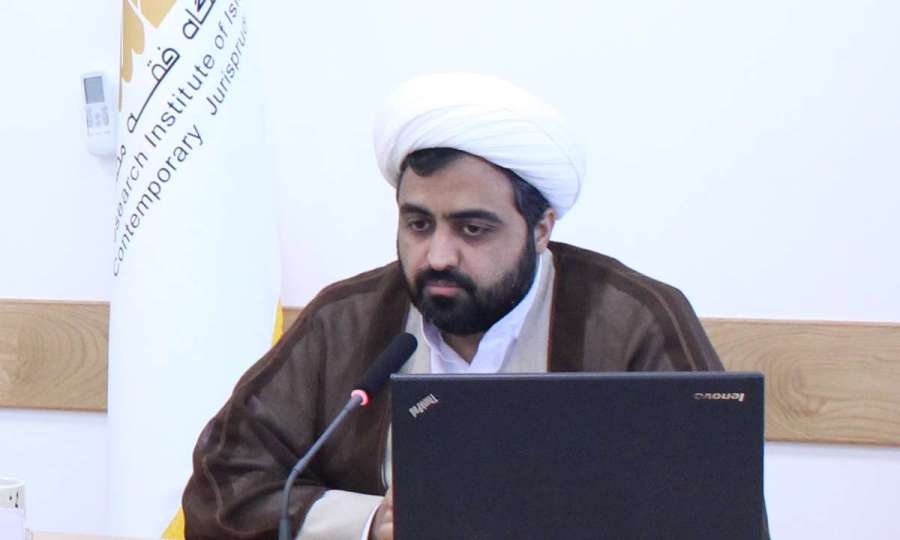Note: Although citizenship rights are considered to be new legal concepts, “citizenship rights jurisprudence” is far more new than that. In the meantime, it seems that jurisprudential research around this concept of the contemporary era faces many challenges. Hujjat al-Islam wal-Muslimin Mustafa Durry, the deputy head of the contemporary jurisprudence research institute and the author of the jurisprudence network of citizenship rights, tries to express the difficulties of jurisprudence on citizenship rights in this note. The following is exclusive note of this professor and researcher of Qum Seminary for Ijtihad Network:
The concept of “citizenship” basically does not have much history, so the fact that Islamic jurisprudence has never dealt with it seriously until recent years does not make it a problem.
The meaning of citizen in this article is “citizenship” of a country; Thus, the title “city” used in this combination is a loose title and should not be used to assign it to city dwellers and exclude rural dwellers, nomads, and desert dwellers.
However, since the concept of citizen is a new concept, it is natural that citizenship rights do not have much history. This has caused the existing jurisprudential tradition about it to be very small.
The newness of the concept of citizenship rights does not create a problem by itself, but the problem starts from the fact that in jurisprudence sources, instead of citizenship, other concepts such as Muslim and Kafir, Islamic Ummah and the like are used; this, in many cases, causes a conflict between the principles of citizenship rights and concepts such as Muslim rights.
Infidels and religious minorities, who according to the opinions of traditional jurisprudence, until now only their lives and property were safe, that too on the condition of paying Jizyah, now by accepting citizenship rights, like Muslim citizens, they benefit from all the rights of Muslims who are citizens of a country. It is no longer possible to abuse them, it is not permissible to harm them, and it is not permissible to be absent from them.
But the story does not end here, on the other hand, Muslims who are not citizens of the Islamic country, do not even enjoy the rights that the infidels who are citizens of this country have. Muslims, who once did not show any superiority to the infidels over the Muslims with the rule of “nafiyeh sabil”, now they find themselves facing rights for the infidels that the Muslims of other countries do not have, just because of the crime of not having citizenship.
Therefore, it seems that one must choose between the traditional division of people into Muslims and infidels and citizenship rights, and citizenship rights cannot be interpreted with the same principles as before.
In addition, among the western citizenship law, there are some cases that differ from the traditional approach to jurisprudence. For instance, the right to freely choose rulers is in conflict with the theory of appointment of the ruler of Islamic society. or the right to have a jury in the court, in opposition to the generality of the judge based on the teachings of traditional jurisprudence. Likewise, the combination of freedom of expression and choice of religion with the theory of apostasy is another challenge to traditional jurisprudence in the face of citizenship rights.
Among the citizenship rights, there are also some that are basically new and did not have a history at the time of legislation, such as the right to enjoy unfiltered internet, the right to consular protection abroad, the right to easy access to cyberspace, the right to form parties and associations, and …. These are things that are born of the new world, and at the time of the issuance of the text, there was no trace of them, so that there were no texts related to them.
In the meantime, modern-minded jurists are probably trying to justify and include these cases in Islamic citizenship rights by insisting on evidences such as the new intellectual way and the ruling of reason and the purposes of the Shari’ah; however, this effort of theirs does not end the conflict, rather it raises a new question in front of Islamic jurisprudence, and that is: if many citizenship rights and the requirements of modern life in general, according to arguments such as the rational way and the rule of reason, are included in the Islamic Shari’ah, then what is the need for the existence of religion and shari’ah? Because if religion and Shari’ah did not exist, they would act on these things rationally based on their common sense and way of life.
In other words, the historical look at the texts, enlarging the scope of the validity of the rational way of life and the promise of the inherent validity of the rational way of life, practically means eliminating the interference of religion in people’s lives. Religion, which was supposed to direct people’s lives and organize their practical ways, has now itself become a subordinate and a consequence of people’s rational ways; A religion that legitimizes it as soon as it is created by the people!
Once again, it seems that the jurisprudence of citizenship rights is like Leviathan or the same strange, restless and tearful creature that is very difficult to analyze and any attempt to correct it poses another challenge to the scholars of jurisprudence.
The passage of time will make it clear whether Islamic jurisprudence will be able to defeat this leviathan or not.
This interview is a part of the electronic magazine “Fundamentals of Civil Rights Jurisprudence” which was produced in collaboration with the Ijtihad Network website.

